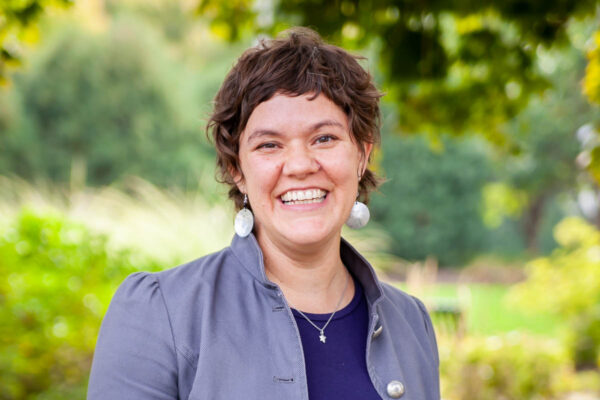Follow-up: What we learned from Angst
Editor’s note: Andy Langdon is St. Paul’s director of youth ministries.
Anxiety is real. As we set up chairs for overflow on Sunday morning for the 250 people who wanted to watch a 43-minute documentary about anxiety, I was surprised by the cross-section of people in attendance. Families with young children, teenagers, parents, grandparents, single, divorcees, and guests from the community made for a beautiful collection. In the first few lines of the film we heard the phrase, “anxiety doesn’t discriminate.”
Though the degrees of anxiety vary, we can all relate to anxiety. For our young people sometimes anxiety leads to physical harm as they attempt to get control, feel empowered, and feel like they are really present.
The film gave permission to talk and listen to one another about anxiety. If we can allow space in our relationships with our kids, friends, or peer groups, we can offer more than judgment as a response to their anxiety. In one of the more compelling scenes, a father and daughter discussed how difficult and misunderstood their relationship was before identifying anxiety as a core issue. Many of those interviewed talked about being heard and listened to as a key in their coping with anxiety.
The film explained why anxiety inhibits a person from functioning normally. Leaving brain science to the professionals, the main take away is that anxiety can hijack your brain function, causing looping symptoms that spiral out of control until the brain is distracted. The stomach ache of anxiety is produced by the brain trying to react instead of respond in an anxious situation. When we don’t address the anxiety, we give it power to control us.
The film offered hope for people struggling. Many tips were shared throughout the film including stress breathing, focus exercises, fidget experiences, or reflective tools. These recommendations were meant to disrupt the brain function, and reset the executive function during a panic/high-anxiety moment, allowing logic like cause/effect thinking return. Though escaping an anxiety-producing situation seems like a helpful comfort, escape is not an effective coping mechanism long term. Counseling and exposure therapy were also described and shown as valuable tools to help your mind process the world.
In response to the film and the positive feedback, I’m organizing opportunities for people struggling with anxiety in themselves or wanting to support others with anxiety. If you’ve struggled with anxiety, we want you to know that you’re not alone. You are God’s beloved. Wholly and dearly loved. If you want to provide feedback on opportunities that would be useful to you, follow this link to sign up on an interest form.
Also, on Sunday, Feb. 9, in Luther Loft at 10:10 a.m., Beth Laureijs will present on Make It OK, a campaign designed to help people have a better understanding of mental illness.




